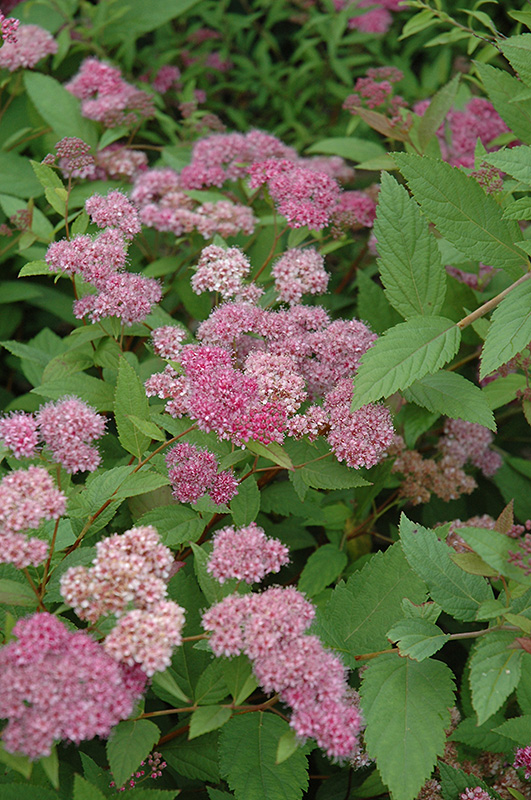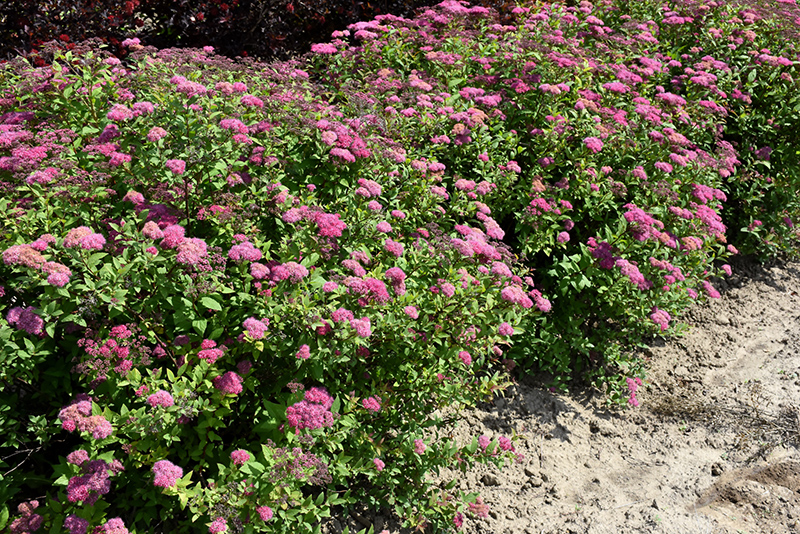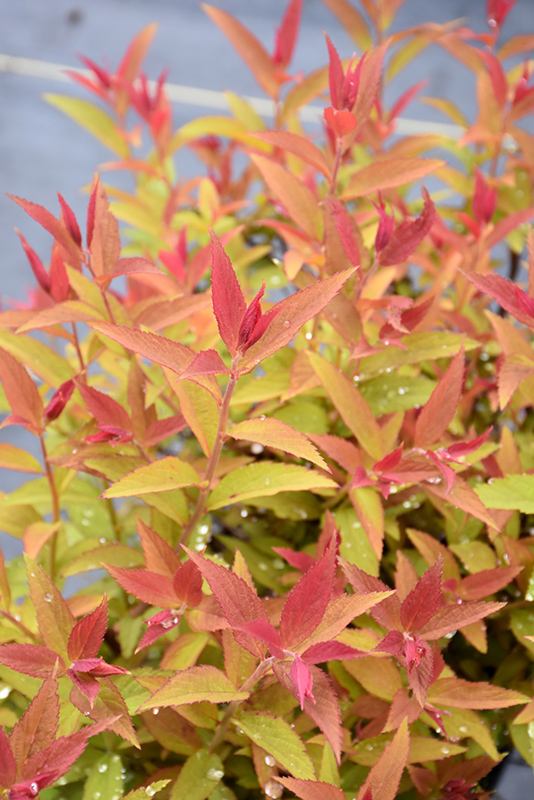>> Home
Froebelii Spirea
Spiraea x bumalda 'Froebelii'
Height: 4 feet
Spread: 4 feet
Sunlight:
![]()
Hardiness Zone: 3
Other Names: Spiraea japonica
Description:
An upright, rounded shrub just smothered by small clusters of hot pink flowers offset against the bold foliage, which emerges bronze and turns purple in fall; excellent in groupings and in the shrub border, needs full sun and well-drained soil
Ornamental Features
Froebelii Spirea features showy clusters of hot pink flowers at the ends of the branches from late spring to early summer. It has attractive bluish-green deciduous foliage which emerges brick red in spring. The small serrated pointy leaves are highly ornamental and turn an outstanding coppery-bronze in the fall.
Landscape Attributes
Froebelii Spirea is a multi-stemmed deciduous shrub with a more or less rounded form. Its average texture blends into the landscape, but can be balanced by one or two finer or coarser trees or shrubs for an effective composition.
This shrub will require occasional maintenance and upkeep, and is best pruned in late winter once the threat of extreme cold has passed. It is a good choice for attracting butterflies to your yard, but is not particularly attractive to deer who tend to leave it alone in favor of tastier treats. It has no significant negative characteristics.
Froebelii Spirea is recommended for the following landscape applications;
- Mass Planting
- General Garden Use
Planting & Growing
Froebelii Spirea will grow to be about 4 feet tall at maturity, with a spread of 4 feet. It tends to fill out right to the ground and therefore doesn't necessarily require facer plants in front. It grows at a fast rate, and under ideal conditions can be expected to live for approximately 20 years.
This shrub should only be grown in full sunlight. It prefers to grow in average to moist conditions, and shouldn't be allowed to dry out. It may require supplemental watering during periods of drought or extended heat. It is not particular as to soil type or pH. It is highly tolerant of urban pollution and will even thrive in inner city environments. This particular variety is an interspecific hybrid.


